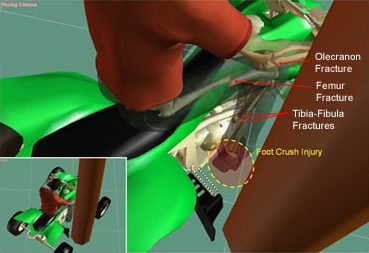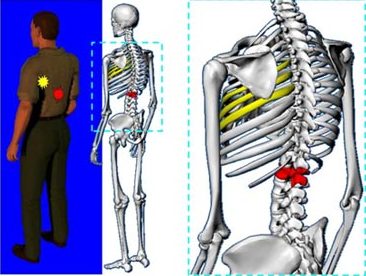Biomechanical engineering applies the scientific principles of mechanical engineering to biological systems, in general, and specifically the causes of human injuries and factors influencing the nature and severity of these injuries. DRE staff have extensive experience evaluating head, neck, torso, abdominal, pelvic and extremity injuries in the automotive, marine, industrial, recreation and domestic environments. DRE also has expertise in the evaluation of safety intervention strategies and devices such as helmets, seatbelts, airbags, machine guarding, and athletic pads and guards. DRE staff evaluate an accident scenario and the potential effects of injury prevention strategies through a combination of in-depth accident investigation and reconstruction, laboratory experiments, and computational modeling.


Published research topics include:
- Computational models in forensic investigations
- Injury reference values from accident reconstruction
- Evaluation of anthropomorphic test devices (crash dummies)
- Biomechanics of skull fracture due to blunt ballistic impact
- Mechanisms of traumatic rupture of the aorta
- Cervical spine injury in the adult and pediatric populations
- Injury from falls or sports activities
- Knee, thigh, and pelvic injuries
- Occupant Kinematics in ATV, automotive and marie accident reconstruction
- Pediatric and adult head injury and skull fracture
